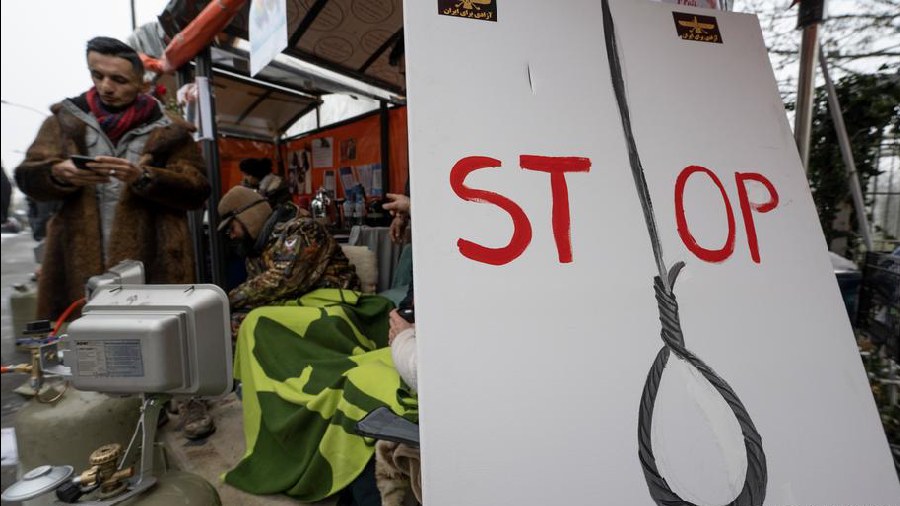Human rights watchdog Amnesty International called on Iran to end its executions of protesters in a letter published on Friday.
The letter said that 11 people had already been sentenced to death with another 15 charged with similar crimes which could see them hanged.
At least two young men have already been executed after having been arrested during the nationwide protests that entered their fourth consecutive month on Friday as hundreds of protesters were seen taking to the streets in the province of Sistan-Baluchistan.
"The 26 individuals have all been denied fair trials, including the rights to adequate defense and access to lawyers of their choosing; to be presumed innocent; to remain silent; and to receive a fair, public hearing," Amnesty wrote in the letter addressed to Iran's head of judiciary, Gholamhossein Mohseni Ejei.
UN condemns violent crackdown
The protests — which broke out after the death of a young Kurdish woman, Jina Mahsa Amini, in custody after being arrested for allegedly not abiding by the country's strict dress code — have seen hundreds of people killed in street clashes with the police.
Tens of thousands of people have also been arrested and detained in high-security prisons.
The violent crackdown has been met with condemnation as well as sanctions from the EU, US and Canada among others.
The UN General Assembly voted late on Thursday to condemn the human rights situation in Iran, including discrimination against women and the violent response to peaceful protesters.
The protests have been called the biggest threat to the Islamic Republic's regime of clerics since the Iranian revolution in 1979 that first brought them to power.
'The fight will go on'
While the death of Amini sparked a largely women-led series of demonstrations against the obligatory wearing of headscarves, unrest has grown and broadened in scope, with protesters from religious and ethnic minorities also expressing their anger with Tehran.
Iranian-German filmmaker and political activist Siba Shakib told DW that the reason that people continued to protest despite the harsh response from security forces was that they had nothing to lose.
"The people don't have anything to lose anymore…. 60%, 70% nobody knows the exact numbers are below or at the poverty rate. They don't know what to eat. They don't know where to live. What are they scared of?" Shakib said.
Gilda Sahebi, a journalist based in Germany who specializes in Middle East affairs, also spoke to DW about the protests and the international response.
"We have seen what the West is capable of doing when it comes to Russia… And we have not seen that response in Iran," she told DW.
She believes one reason explaining what she considers the West's mild response "is that a lot of governments do not believe that this will be the end of the regime. So they're very hesitant to actually do something that clearly puts them on the side of the protesters."
But Shakib thinks the government cannot remain as it is, "So in a certain way, we can say the end is foreseeable until this government is in place — the fight will go on."










